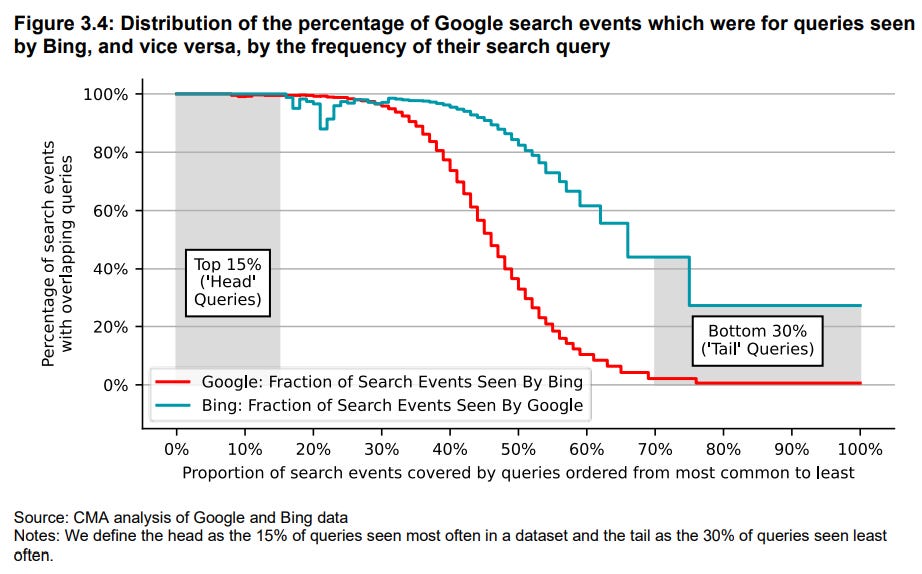Bing + ChatGPT vs Google
Are we all going to be talking about Binging things rather than Googling things pretty soon?
(You’ll find the text version of “Bing + ChatGPT vs Google” below this embedded video)
Are we all going to be talking about Binging things rather than Googling things pretty soon?
This is a really smart move by Microsoft: according to this article, the company is going to start incorporating the AI technology behind ChatGPT into its search engine in the coming months.
Today, Bing is a distant No.2 in the search engine market; hardly anyone uses it. If you look at global market share data for search engines, Google has 93% of the market, while Bing has 3%.
There’s been a lot of discussion about why Google is so dominant in search, and it essentially comes down to three factors: strong brand, higher quality search results and default settings.
But there’s a debate about which of these factors are most responsible for Google’s dominant position.
Google says it simply has better technology than Bing and that’s the reason it has better search results, which users obviously prefer.
Microsoft says Google’s position mostly comes from its strong brand and this widespread perception that Google’s search results are better when in reality, Bing’s are just as good.
Microsoft also argues that Google’s position as the default search engine on most mobile devices gives it an unfair advantage. For example, Google has agreements with Apple, Samsung, and other large phone manufacturers to be the default search engine on those devices in exchange for a cut of search ad revenues.
For the most part, everyone agrees that Google has a very strong brand and its search results are at least perceived to be better than Bing’s.
There’s also general agreement that for uncommon or rare search queries, Google has better search results thanks to its larger volume of data on those types of queries.
In any case, that’s the state of search today. Microsoft is a distant No. 2 to Google in search and it hasn’t been able to make much of a dent in Google’s dominant market share for various reasons.
But now, with GPT technology, this could be an opportunity for Microsoft to truly differentiate Bing from Google and get people to consider switching over.
The company invested $1 billion into OpenAI, the company behind ChatGPT, in 2019. And that investment included an agreement to allow Microsoft to incorporate some of OpenAI’s technology into Bing.
Today, Bing search results look very similar to Google search results. But imagine if you combined something like ChatGPT with a search engine.
In addition to links to websites, you might see a summary of the information within those top search results; you might be able to interact with the search engine in a more conversational way; and you might be able to ask follow up questions.
You could potentially have all the benefits of an AI-powered chatbot like ChatGPT on top of a powerful internet search engine. Today, ChatGPT doesn’t have access to the internet, so it lacks current information.
This could combine the best elements of search and chatbots, giving people a reason to use Bing over Google.
And as The Information points out, if OpenAI starts charging for ChatGPT in the future as it’s said it will, Bing could be one of the only ways to access that technology for free.
Two Questions
This all sounds great, but it raises two questions.
First, how will Google respond? Because you have to imagine, at some point, it’s going to make a big move of its own.
And two, how radically is Microsoft willing to change Bing? I talked about some of the ways that it could transform Bing, but is it willing to go that far?
After all, Microsoft is still a big company—even bigger than Google. And big companies are usually less willing than small companies to make radical changes to their products.
But in this case, maybe it’ll be different. Microsoft is a distant No. 2 in search. It has every incentive to swing big to try to catch up with Google.
We’ll see what happens.





